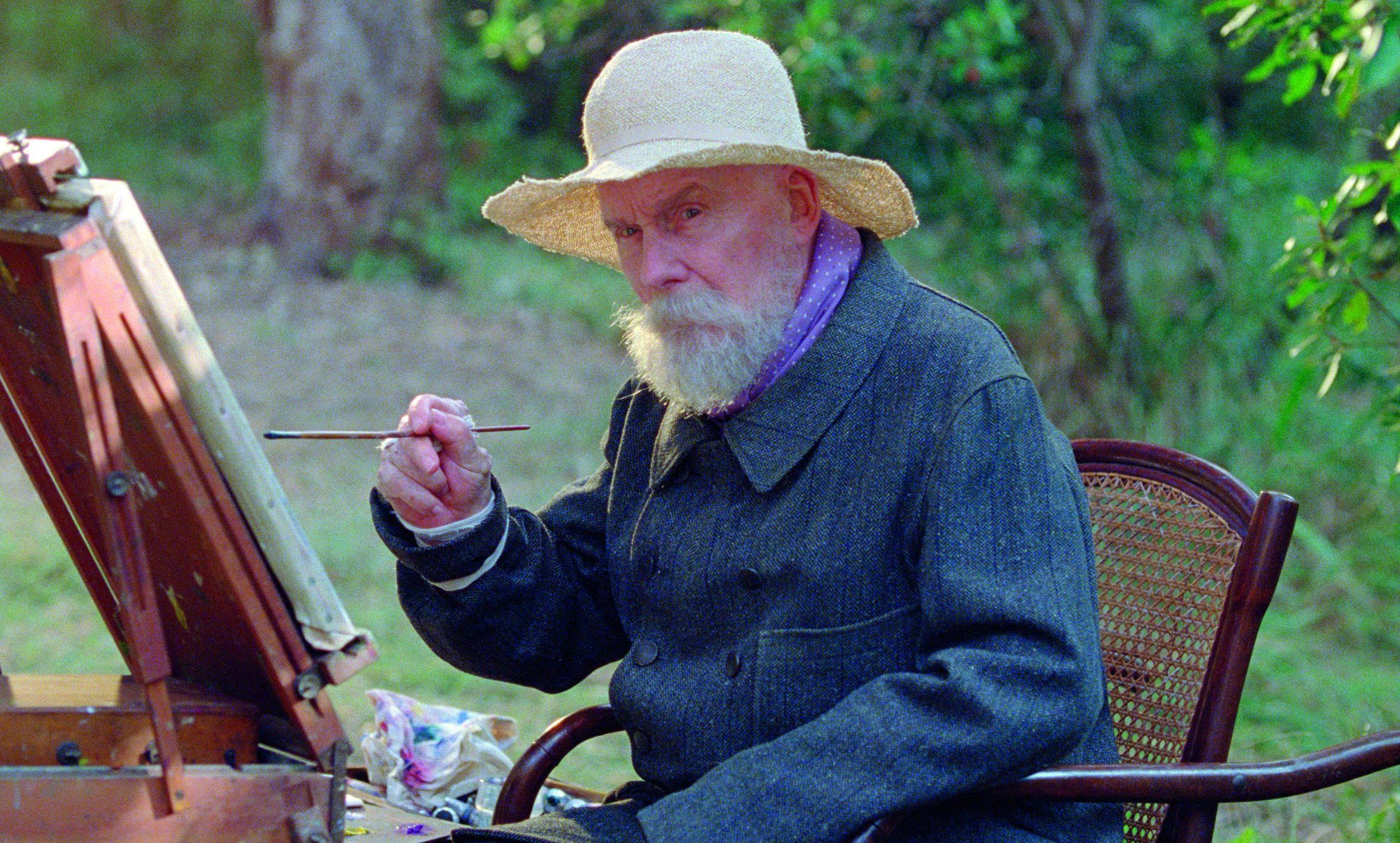Renoir
Opens Fri., May 3 at SIFF Cinema Uptown. Rated R. 111 minutes.
Pretty pictures in a movie are sometimes dismissed as eye candy, the implication being that empty calories are no substitute for the sound nutrition of noble stories and thematic depth. That may be, although it would be difficult to deny the chocolate-box allure of Renoir, a lushly photographed gloss on a real-life moment in an artistic family.
The title identifies the family; the moment is 1915. As war rages on the other side of France, Pierre-Auguste Renoir (Michel Bouquet), by now elderly and arthritic, paints at his sun-dappled estate on the Cote d’Azur. He employs a new model, Andree (Christa Theret), a willful redhead who suits Renoir’s vision of glowing flesh and interior mystery.
Actually we have to take the mystery on faith, because Theret doesn’t suggest much beyond a handsome surface. Andree also falls under the gaze of Renoir’s middle son, during his return home to convalesce from a war injury; a quiet rivalry for her attention emerges between the already-awkward father and son.
The young soldier will one day be Jean Renoir, the director of Grand Illusion and The Rules of the Game and a giant of world cinema. The filmmaker that we know from his later life—large, bearish, warm—doesn’t resemble actor Vincent Rottiers, although Rottiers does well at suggesting a certain impatience with the privileged world around him. For her part, Andree will later become Catherine Hessling, Jean Renoir’s wife and an actress he tried to make, without much success, into a silent-movie star. But that’s years after our perspective in Renoir, which prefers to wallow in a great deal of late-afternoon sunshine and lush trees whispering in the Mediterranean wind.
This, to return to the eye candy, is not a terrible place to wallow. Director Gilles Bourdos does his best to conjure up a warm Impressionist’s summer, and he wisely hired cinematographer Mark Ping Bing Lee (In the Mood for Love, Flowers of Shanghai) to catch both the suppleness of magic-hour light and the hardness of the painter’s ravaged hands.
Bourdos hints at the brotherly feeling between the Renoir boys and the possibly feminist glimmerings within the defiant Andree, but nothing goes deep enough to draw blood—except perhaps Bouquet’s finely focused performance, a strong, flinty turn from an actor who began his film career in 1947. Renoir is a failure in many ways. But there are lots of reasons to see movies, and spending a couple of languid, summery hours on the Renoir estate is not an entirely contemptible one, even if the drama falls well shy of its subject.
film@seattleweekly.com







